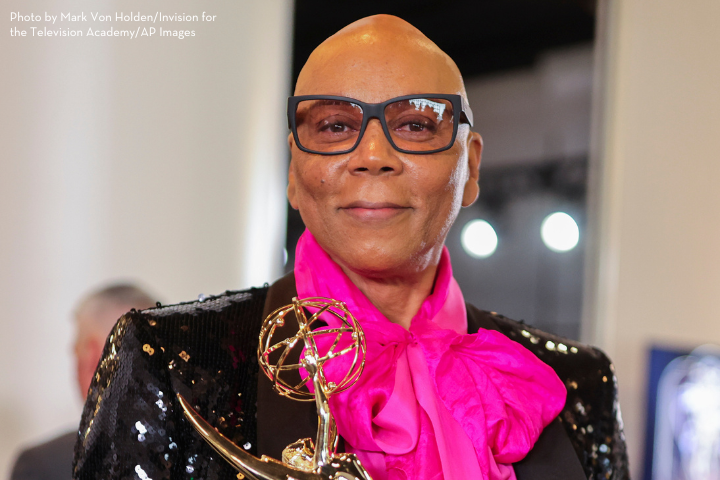How RuPaul Changed My Life

By Dietlind Lerner
Monday night, as RuPaul accepted the Emmy for Outstanding Reality-Competition Program in 2023, he* delivered a wise and powerful message to the audience: “If a drag queen wants to read you a story at a library, listen to her because knowledge is power, and if someone tries to restrict your access to power, they are trying to scare you, so listen to a drag queen.”
When my daughter first confided in me four years ago that she was transgender, my initial reaction was to wish that she might be mistaken. Life is already tough enough, and the prospect of taking on all of the challenges of transitioning seemed overwhelmingly daunting. I could see no apparent advantages for her.
Today, I realize that my initial thoughts were only partially accurate. Yes, everything, from adapting to new pronouns to sharing my pantyhose, was initially bewildering because it was so different from what I’d known. On top of that, transphobia is real, and she has already received threats and been subject to deeply hateful treatment. But one vital shift I hadn’t anticipated was the great increase in her happiness and confidence as she began presenting as her authentic self. (As much as I hate being ma’amed, she was thrilled when that’s how we were both addressed last week.)
My daughter never doubted my love but also needed me to understand her and the world she was entering. As part of this process, she insisted we sit down together to watch RuPaul’s Drag Race.
Here’s how she explains why this was so important to her:
“As someone who was raised by media that demonizes queerness, it felt enlightening to watch the open mocking of gender stereotypes in RuPaul’s Drag Race as it gave me the confidence to do so in my own life. Seeing queens like Monica Beverly Hillz grapple with their gender identity helped me tremendously at a time when I was reassessing my own. While I knew my mom would love the absurd pageantry of the show, I was most eager to show her this celebration of self-expression as a way of demonstrating the freedom tied to this new world I had uncovered through my transition.”
She was right, of course. I’m a sucker for pomp and pageantry, but the real highlight was the opportunity to peer behind the curtains and find a broad, vibrant, and largely inclusive array of queer people. I knew these communities existed, but they weren’t yet part of my lived experience. Watching RuPaul’s Drag Race with my daughter and having her explain some of the jokes and slang that were new to me was what I needed to finally understand that she would be fine. She had found her people.
Stories and representation matter. My daughter takes pride in the fact that I work with an organization like PEN America that fights for free expression – including at Drag Queen Story Hours that have come under attack – and has a talented writer, who happens to be a trans woman, as president of its board of trustees. And I take pride in her for all that she has accomplished and shared with me. Yes, transitioning is physically and mentally challenging, but it is also joyous, creative, brave, and authentic. This is why I say that if you can’t find a drag queen to listen to, I wholeheartedly recommend tuning in to RuPaul.
* RuPaul famously does not have a pronoun of choice. “You can call me he. You can call me she. You can call me Regis and Kathie Lee; I don’t care! Just as long as you call me.”





